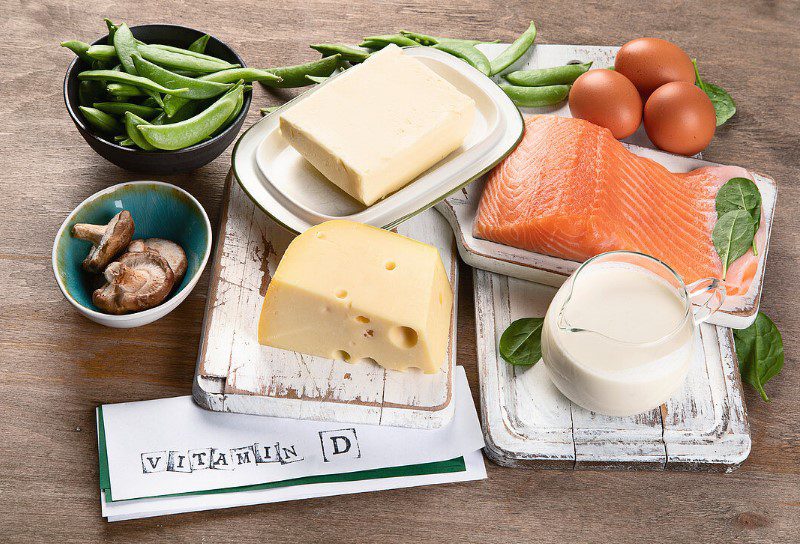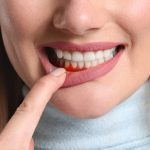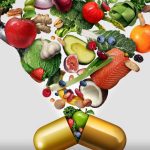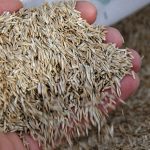A healthy diet and a little help for you
Maintaining a healthy diet and lifestyle can be a challenge at best. Going out to stay active, enjoying rare glimpses of winter sunshine, and getting your daily dose of vitamin D isn’t always possible when times are hectic. This is why supplements exist and we recommend vitamin d3 and k2.
Why it is important to take Vitamin D3 with Vitamin K2
Many people suffer from Seasonal Affective Disorder (or “the winter blues”), which can lead to low energy, a sense of gloom, and little motivation to eat healthy foods.
Doctors recommend taking a vitamin D supplement in the winter to boost vitamin D levels during the months when there is less sunlight. The best supplements are those based on Vitamin D3 and Vitamin K2.
Better together: Vitamin D3 and K2 maximize the absorption of Vitamin D.
The combination of Vitamin D3 and K2 has recently gained scientific and public attention due to their excellent complementary effects.

Both vitamins are fat soluble and work together to metabolize calcium grade in the body by activating useful proteins. While Vitamin D3 improves calcium absorption, Vitamin K2 pinpoints where that calcium can be used. In fact, when you don’t get enough calcium from your diet, vitamin D helps create the calcium your bones need. Therefore, in order to prevent their weakening, vitamin K2 helps to promote calcification by regulating and reducing the damaging effect of the calcification itself and the hardening of the soft tissues.
The importance of fatty meats and vegetables despite the intake of vitamin D3 and K2
An online survey of diet and nutrition showed that people in general consume too much salt, sugar, and saturated fat, while not eating enough fruits and vegetables. This has huge implications for the consumption of essential nutrients.

Vitamin D is found in abundance in fish oil, fatty fish, red meat, egg yolks, and liver: complex foods, not easy to digest and often unwelcome. This is why we recommend the use of supplements, especially during the winter.
In the short term, as already mentioned, the use of these vitamins can help prevent “winter malaise”. In the long term, however, it can help reduce the risk of developing bone-related health problems or other chronic diseases in old age.
Vitamin K is most commonly found in foods of animal origin, some fermented foods, and even green leafy vegetables. Studies have shown that a relatively high intake of vitamin K is required to support a healthy vascular system and bones.
So, if you are a vegetarian, or if you eat meat and don’t include many vegetables in your diet, you may want to consider taking a vitamin K2 supplement.
If you eat mostly lean meats and low-fat foods, as these are often promoted as the “healthy option of the diet,” you may actually be limiting your intake of vitamin K. Vitamin K (along with vitamins A, D, and E ) is a fat-soluble vitamin, which means that the body absorbs it more easily in the presence of dietary fat. So consider integrating them into your diet and add a detox program to your daily routine for amazing results in several areas of your health.
Take Vitamin D3 and K2 for bone and heart health
Taken together, Vitamin D3 and K2 can help increase bone mineral density and strengthen bones, which is beneficial for people at risk for bone fractures, such as the elderly population. In one study, researchers also found that vitamin K supplements helped postmenopausal women maintain healthy bones. The women in the study took the supplements for 3 years and saw positive effects for age-related bone deterioration and collapse of the spine.

It is recommended that you choose a vitamin K2 supplement over K1. Studies have shown that blood vessels absorb and use vitamin K2 as opposed to K1 when available.
Vitamin K2 activates proteins in the blood that prevent the calcification of blood vessels, where mineral deposits build up on the walls of a person’s blood vessels.
Calcification or hardening of blood vessels is relatively common and can lead to life-threatening complications, such as heart attacks, strokes, dementia, and loss of blood supply to parts of the body. Taking vitamin d3 and k2 together helps prevent these complications.
Read the Tips to Prevent Periodontal Disease next.
Why is it important to Weigh Your Beehive with a Beehive Scale? The answer is simple. Weighing your beehive is an excellent unobtrusive way of monitoring how your bees are doing. Read more …





